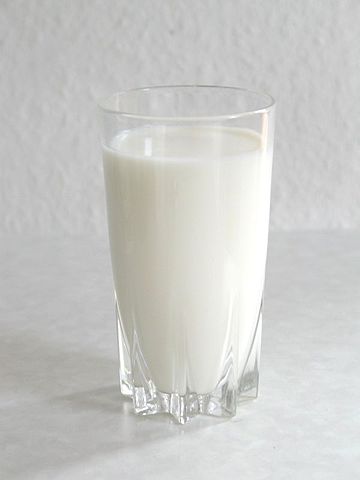Cow Milk vs Soy Milk
The primary distinction between cow milk and soy milk is that cow milk comes from an animal, while soy milk is produced from a plant. There are other significant differences between the two, which we will discuss here. Soy milk is 100% lactose-free, making it suitable for lactose intolerant individuals, while cow milk contains lactose. Soy milk is also a popular and preferred alternative to cow milk for vegetarians and vegans who do not consume animal-derived foods.
Key Takeaways
- Cow milk is produced from animals, while soy milk is derived from plants.
- Soy milk is 100% lactose-free, making it suitable for lactose intolerant individuals, while cow milk contains lactose.
- Cow milk is high in calcium and phosphorous, while soy milk has less calcium and phosphorous but is easily digestible and contains dietary fiber.
What is Cow Milk?
Cow milk is a popular drink worldwide and among all age groups. However, it contains lactose, which some people are allergic to because their bodies do not produce enough of the lactase enzyme. This intolerance leads to discomfort when consuming lactose-containing products like cow milk. There are lactose-free cow milk options available, but researchers have found that these products cannot be 100% lactose-free.
Cow milk is rich in nutrients such as calcium and phosphorous, making it beneficial for growing children. It also contains more vitamin B12 than soy milk and is a source of water-soluble vitamins. Vitamin A is added to cow milk during the production process.
What is Soy Milk?
Soy milk, though called milk, can be better described as a beverage. It is a popular choice for those allergic to lactose and is considered superior to lactose-free milk options. Soy milk contains fewer nutrients than cow milk, with lower levels of calcium and vitamin B12. However, it does contain phosphorous, dietary fiber, protein, fat, and carbohydrates.
Older individuals and those allergic to dairy milk often switch to soy milk, which is more easily digestible due to the presence of dietary fiber.
What is the difference between Cow Milk and Soy Milk?
- Cow milk comes from animals, while soy milk is derived from plants.
- Soy milk is 100% lactose-free, whereas even lactose-free cow milk contains some lactose.
- Cow milk is high in calcium, while soy milk has little calcium content; calcium is often added to soy milk.
- Cow milk has twice the amount of phosphorous as soy milk.
- Cow milk contains more vitamin B12 than soy milk.
- Soy milk is more easily digestible than cow milk.
- Cow milk is a source of water-soluble vitamins.
- Cow milk is beneficial for growing children due to its high calcium content, while soy milk is suitable for lactose intolerant individuals and may be better for weight control.
- Some people may be allergic to soy milk, while cow milk does not typically cause allergic reactions. However, some studies suggest a link between cow milk consumption and diseases such as autism spectrum disorders and cow milk allergy (CMA), although these studies are not fully supported.
Cow Milk vs Soy Milk
Cow milk is derived from cows, while soy milk is made from soy plants. Both have their benefits and drawbacks. Cow milk is beneficial for growing children due to its high calcium content, while soy milk is an excellent choice for vegetarians, vegans, and lactose intolerant individuals. Soy milk is easier to digest because it contains fiber. Cow milk is fortified with vitamins A and D during production, and calcium is added to soy milk. When purchasing these products, ensure you check the label to confirm their nutritional value.
